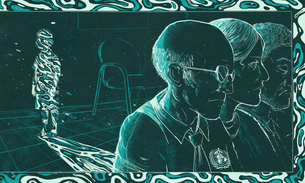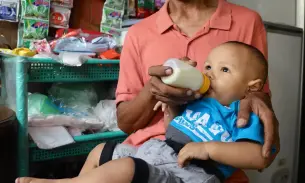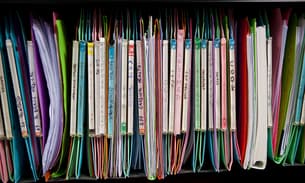
Help us diagnose the causes of the UK's health gap
Join Bureau Local’s new project to investigate health inequalities across the UK
Why do some people in the UK have the benefit of good health, and others do not?
We are launching a new collaborative project to explore health inequalities in the UK.
“If health has stopped improving, it is a sign that society has stopped improving … Austerity has taken its toll … From rising child poverty and the closure of children’s centres, to declines in education funding, an increase in precarious work and zero hours contracts, to a housing affordability crisis and a rise in homelessness, to people with insufficient money to lead a healthy life and resorting to food banks in large numbers, to ignored communities with poor conditions and little reason for hope. And these outcomes, on the whole, are even worse for minority ethnic population groups and people with disabilities.”
This, from the landmark Health Equity in England: The Marmot Review 10 Years On, was damning in its summary of Britain in 2020, even before the devastating effects of Covid-19 made the scope of the problem more visible than ever before.
The virus has not created health inequalities, but inflamed those that already exist. It took hold of a UK that was underprepared and reliant on a health infrastructure suffering from years of underinvestment. The landscape was one of shocking variation in life expectancy across every axis of circumstance and identity: wealth, location, disability, race, sexuality and gender identity.
The situation is grim, especially for marginalised groups and people living in poverty, but sometimes crises can offer the potential for a reset; for fresh thinking and breaking out of assumptions that have seemed locked in place for some time. And it is that space of possibility that we want to step into and make a difference.
The project
At the Bureau Local, we have a strong track record of reporting on complex and sensitive issues, such as homelessness and domestic violence.
To try to think deeply about health inequality in the UK, we are launching a new reporting project that will take time to investigate the systems, policies and practices that result in a lack of health equity.
Some examples of this include:
- “Postcode lotteries” leading to regional differences in diagnosis, treatment, care or funding
- People avoiding the medical system because of stigma, fear, or lack of information and accessibility
- Decisions that fail to benefit everyone because of austerity, profit-making and institutional biases
We will explore the infrastructure gaps, systematic obstacles and power disparities that make access to healthcare unequal.
We are also going to be partnering with the Global Health team at the Bureau, who are exploring health justice around the world, with the idea of investigating a topic from a local to global level. We hope that by exploring both micro and macro levels of a story, using people power and community organising alongside data analysis, that we can tell stories in new and powerful ways.
We want to hear from lots of different people and build a network of collaborators, including people and communities affected by health inequalities across the UK.
We want to work together to tell stories that get to the heart of these inequalities, creatively but authentically, and find ways to use them to make a positive, real world impact.
Get involved
We would love you to join us. Here's how:
- Join the project! Sign up to this mailing list to get updates on the work, share your own ideas for investigation with us and get involved in upcoming events, such as our power mapping session on 14 December and our Health Inequality Laboratory, which will explore and test story ideas for the project. Meetings will start in January 2021.
- Find out more about the Global Health Justice project.
- Get in touch. You can submit ideas of what you think we should investigate by sending an email to [email protected], or to Rachel Hamada or Vicky Gayle. If you want to share information that you feel is sensitive, you can contact us on encrypted email: Rachel/Vicky.




